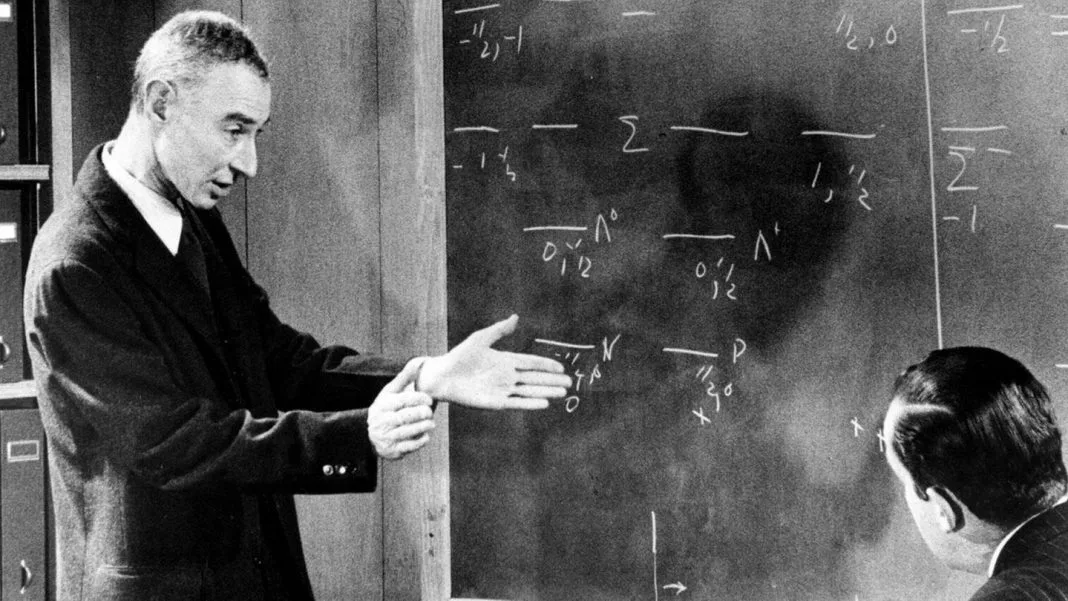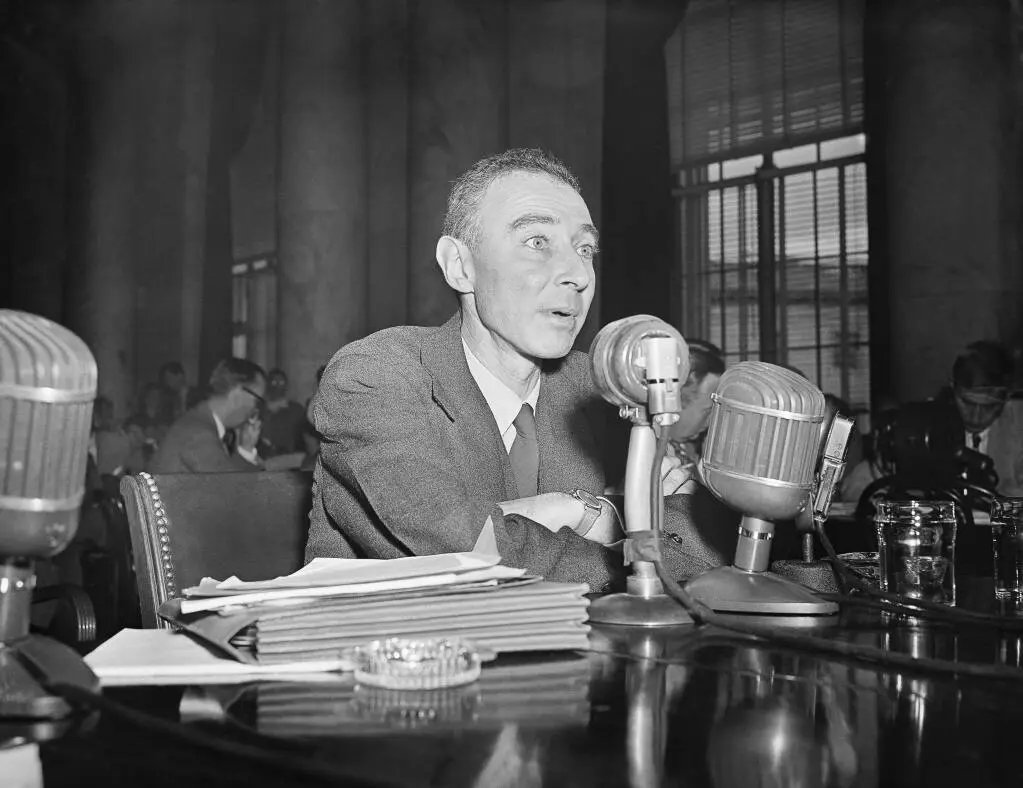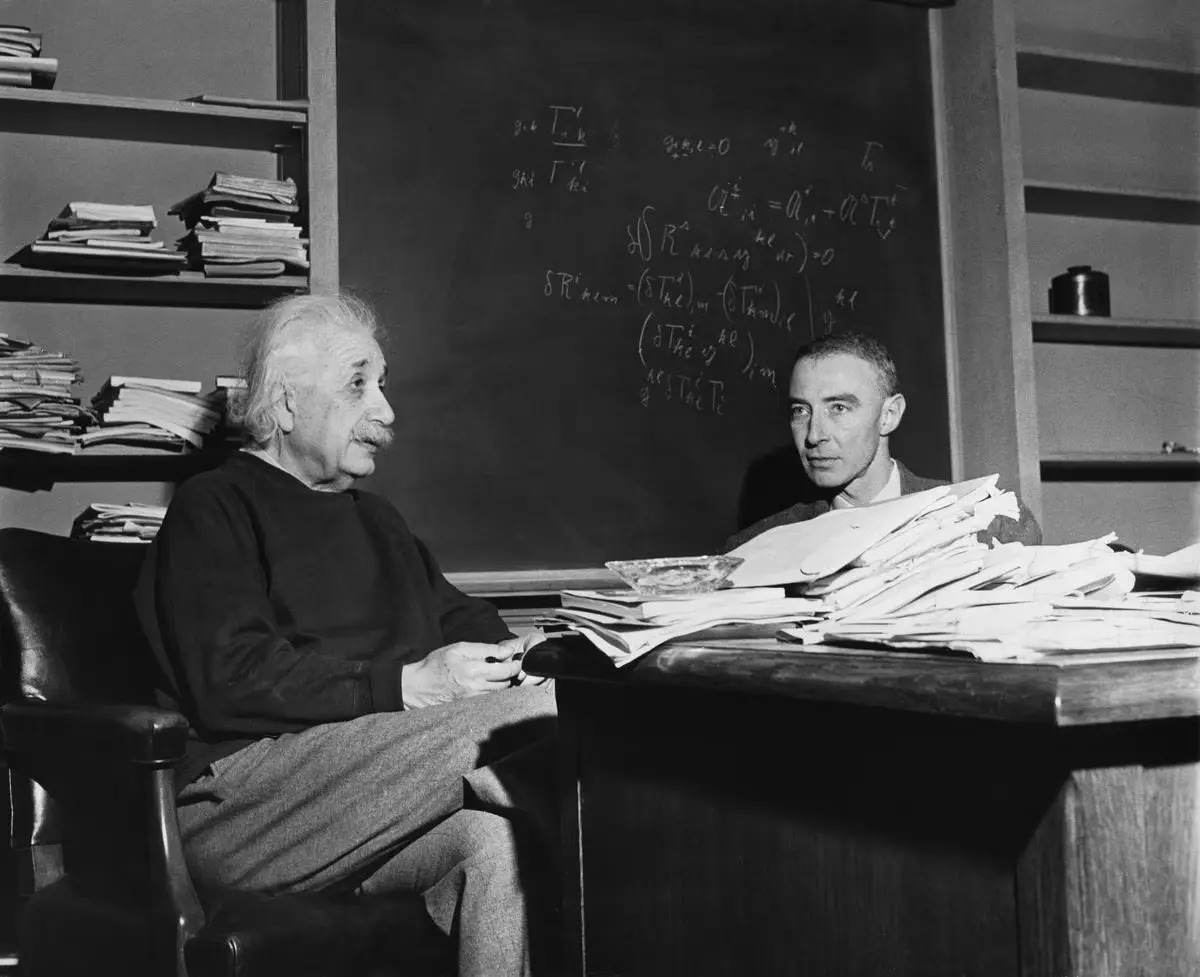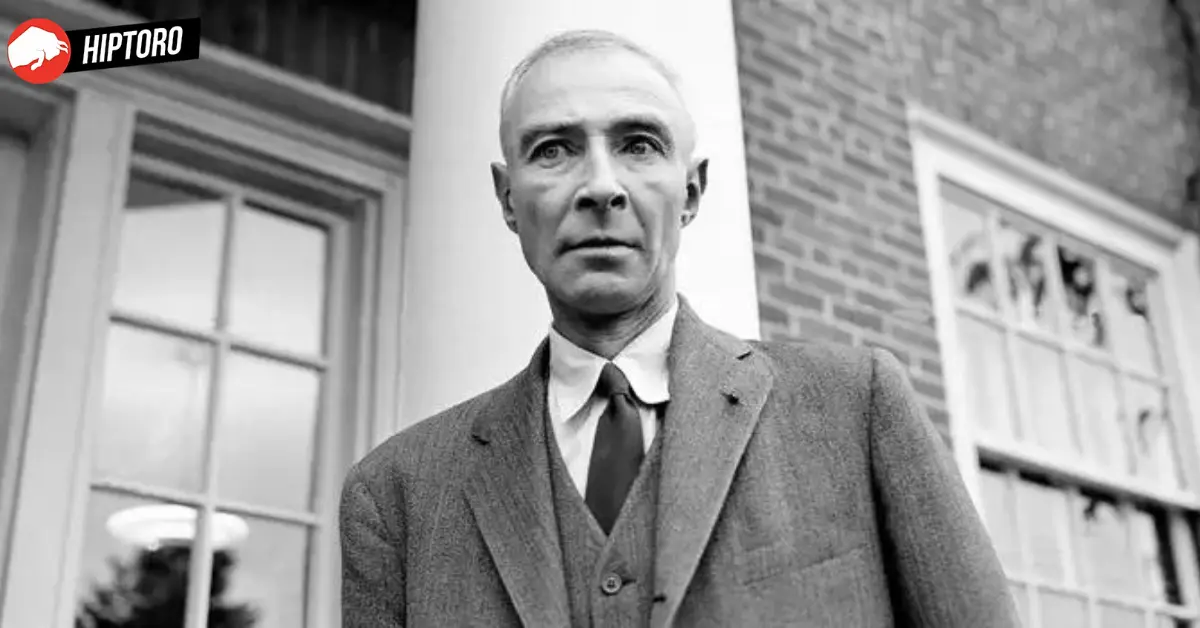J. Robert Oppenheimer: Life & Career
J. Robert Oppenheimer, a renowned American theoretical physicist, holds a significant place in scientific history for his pivotal role in the development of the atomic bomb during World War II. Born on April 22, 1904, Oppenheimer’s profound insights into quantum mechanics and his leadership as the scientific director of the Manhattan Project earned him the moniker “father of the atomic bomb.”
Educated at esteemed institutions such as Harvard and the University of Cambridge, Oppenheimer‘s brilliance was evident from an early age. His pioneering contributions to quantum theory and his influential work on neutron stars laid the groundwork for his eventual involvement in the Manhattan Project.

During the 1940s, Robert Oppenheimer led a diverse group of scientists in a race to harness nuclear fission for military purposes. This monumental effort culminated in the successful testing of the first atomic bomb in July 1945. The sheer power of this invention forever altered the course of human history, ushering in the nuclear age and raising profound ethical and moral questions.
Despite his monumental achievements, Oppenheimer’s legacy is not without controversy. His involvement in the development of weapons of mass destruction led to a complex and conflicted reputation. He faced scrutiny during the McCarthy era and was subjected to a security clearance revocation, which cast a shadow on his career.
J. Robert Oppenheimer’s story is one of scientific brilliance, ethical dilemmas, and the profound impact of human ingenuity. His contributions, both positive and morally complex, continue to be a subject of exploration and debate, reminding us of the intricate interplay between science, society, and the human conscience.
Why Didn’t Robert Oppenheimer Receive A Nobel Prize in Physics?
The Nobel Prize, one of the most prestigious honours in the world, is awarded annually to individuals and organizations that have made exceptional contributions in various fields. Established by the will of Alfred Nobel, the inventor of dynamite, the Nobel Prize recognizes outstanding achievements in the categories of Physics, Chemistry, Medicine or Physiology, Literature, Peace, and Economic Sciences.
Although J. Robert Oppenheimer displayed remarkable brilliance in the field of physics, he did not achieve a Nobel Prize for his efforts due to his lack of groundbreaking or experimental work. He made significant contributions in the areas of nuclear fusion, quantum tunnelling, molecular wave functions, and positrons, but his work was not innovative enough to earn him the Nobel Prize.

Furthermore, the development of the atomic bomb, which Oppenheimer had a hand in, had already been worked on by other physicists prior to his involvement and thus was not deemed Nobel Prize-worthy.
It is also argued that J Robert Oppenheimer did not receive the Nobel Prize due to his work on the atomic bomb being kept private and not publicized in scientific publications. Being classified information it could have been difficult for the Nobel Prize committee to assess his accomplishments. Additionally, some members of the Nobel Prize committee viewed his work on the bomb as too political and contentious, favouring to recognize more peaceful and fundamental research.
In 1954, he was also deprived of his security clearance and the Atomic Energy Commission proceeded to take him to court, finding him guilty of being “disloyal” and for his “lack of candour”. He was disgraced and humiliated by the authorities and the scientific community.
Although, his peers such as Albert Einstein and Niels Bohr were granted the award for their significant contributions in the field of physics.
- Albert Einstein was awarded the prize in 1991 “for his services to Theoretical Physics, and especially for his discovery of the law of the photoelectric effect”
- Niels Henrik David Bohr received the honour in 1992 “for his services in the investigation of the structure of atoms and of the radiation emanating from them”










